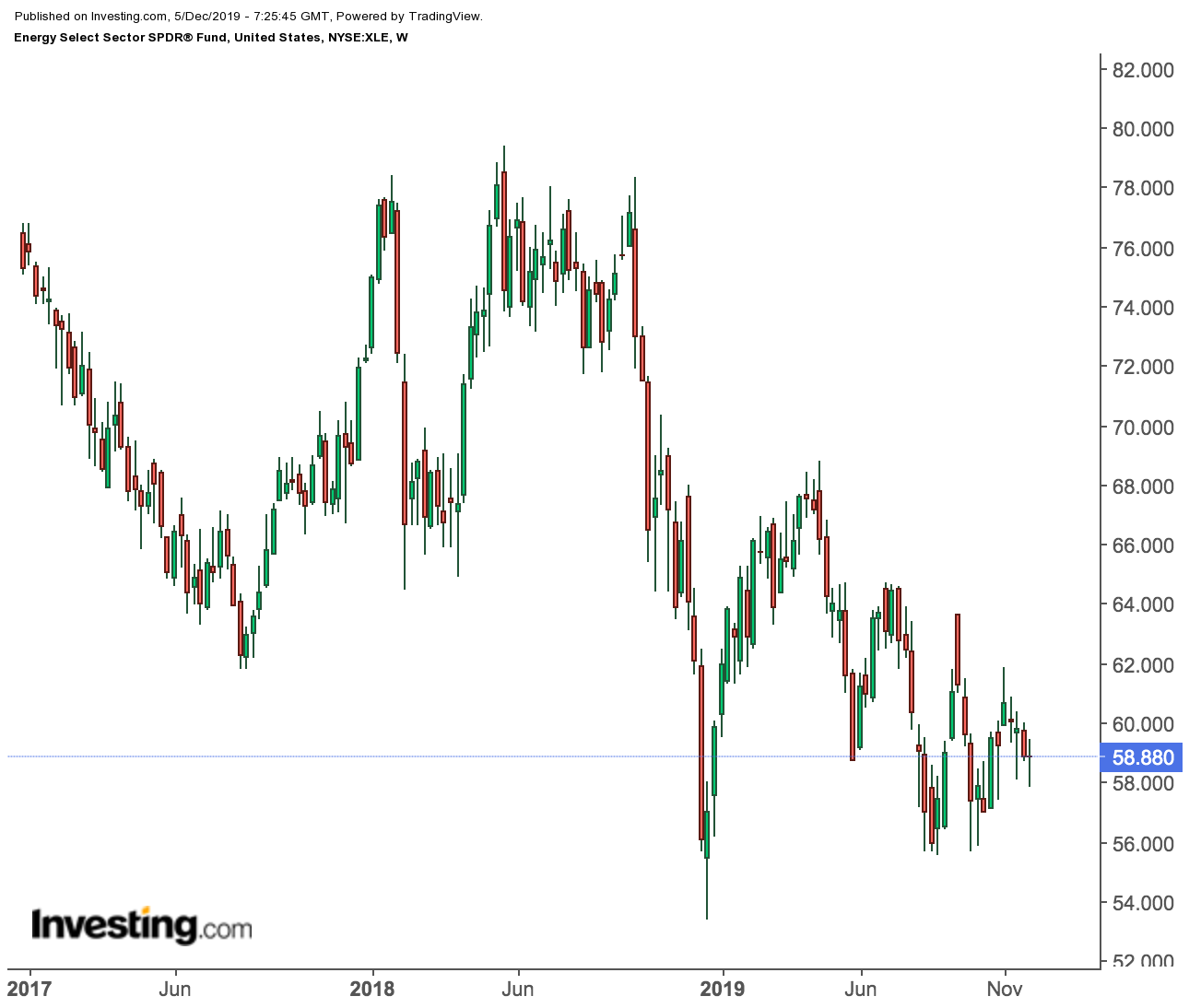U.S. futures, Japan’s stimulus, bitcoin weakness - what’s moving markets
2019 was without doubt a dead year for some of the largest oil and gas producers. Their share prices struggled to break out of a sluggish cycle, triggered by oversupply and concerns about potential recession as the U.S. and China became embroiled in a bitter trade war.
The Energy Select Sector SPDR ETF (NYSE:XLE), which holds large-cap U.S. energy stocks, has massively underperformed the S&P 500 Index this year, rising just one percent when the benchmark rose close to 25%.
Unfortunately, the outlook for oil and gas companies remains as uncertain in 2020 as it was last year. The sharp rise of U.S. shale oil and gas, coupled with some signs of an economic slowdown in the world’s major oil consuming nations and the continuing U.S.-China trade dispute, have dampened the chances of a sharp recovery in oil prices.
This scenario, if it continues to play out in 2020, means investing in oil stocks won’t be a bet worth taking as the risks to further downward pressure on oil prices will remain elevated. For investors in oil stocks, the choice to make remains very simple: continue to buy stocks which pay higher dividends and where companies are showing the financial discipline to ride through a sustained weakness in oil prices.
This approach certainly makes sense, especially when the U.S. Federal Reserve is firmly on the sidelines and ready to cut interest rates if the economy warrants such a move. One bright spot for oil bulls that some analysts are highlighting is that U.S. crude has surprisingly traded between a $50-$60 a barrel range in the past six months and is on pace for its best year since 2016.
A Sweet Spot
For them, this range represents a sweet spot for both producers and consumers where the large integrated oil firms can generate strong cash flows, without pinching consumers too hard.
Net bets on higher U.S. crude prices by hedge funds and other speculative investors rose to their highest level in two months during the week ended Nov. 26, according to Commodity Futures Trading Commission data. The ratio of bullish bets to bets on lower prices is nearly 6:1, well below April’s peaks but still much higher than it was in mid-October.
Amid these conflicting signs about the oil market’s supply and demand, we continue to recommend buying dividend-paying energy stocks. The intergrated energy producers, such as Chevron Corp (NYSE:CVX) have shown many times that they can sustain a prolonged downturn much better and can still support their dividends.
Chevron was the best performing Big Oil stock in 2019 after hiking its share buyback program 25% and dividend by 6%. CEO Mike Wirth is pursuing a strategy where he is unwilling to spend big, and is instead focusing more on returning capital to investors. With an annual dividend yield of 4%, the producer pays $1.19 a share quarterly payout.
For those with a slightly higher appetite for taking risks and earning a dividend yield as high as 7%, Royal Dutch Shell (NYSE:RDSa) is your best bet. The energy giant has been leading the sector in shifting from oil into lower-carbon natural gas and electricity production. It’s also undertaking a $25-billion share buyback plan, which could keep its stock well-supported. The producer pays $0.94 a share quarterly payout.
Bottom Line
Investors may not see a firm recovery in global oil prices in 2020, a situation that could keep share prices of oil companies depressed. Still, investing in stocks that offer higher yields and stable cash flows makes sense if you are a long-term investor, focusing on the dividend income.
